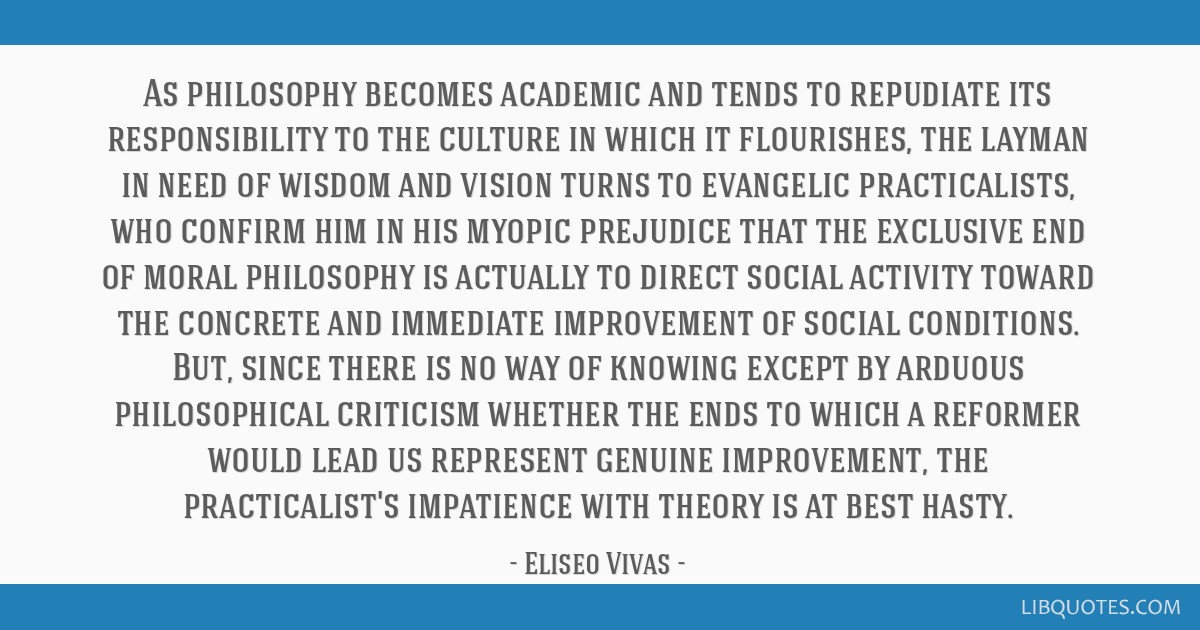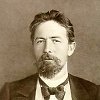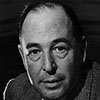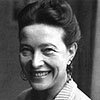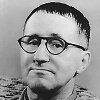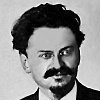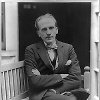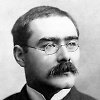As philosophy becomes academic and tends to repudiate its responsibility to the culture in which it flourishes, the layman in need of wisdom and vision turns to evangelic practicalists, who confirm him in his myopic prejudice that the exclusive end of moral philosophy is actually to direct social activity toward the concrete and immediate improvement of social conditions. But, since there is no way of knowing except by arduous philosophical criticism whether the ends to which a reformer would lead us represent genuine improvement, the practicalist's impatience with theory is at best hasty.
The Moral Life and the Ethical Life (Chicago: 1950), pp. 3-4
